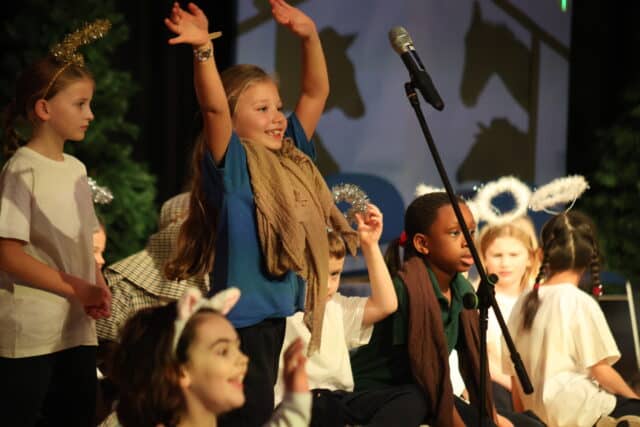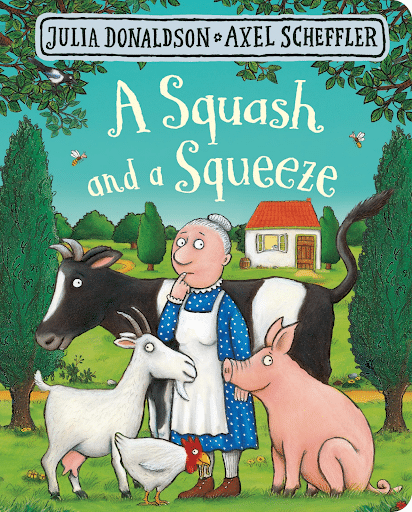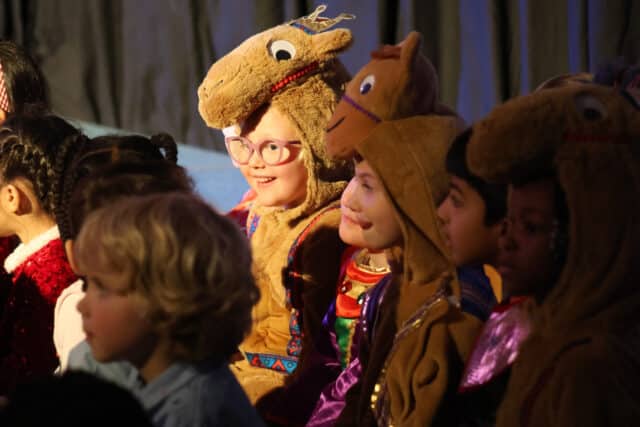Sharing the harvest
This week in school, pupils brought in bags brimming with food and household goods to donate to the Brentwood Foodbank and in our Harvest Festival Service, led by our chaplain Rev’d McConnaughie, Pastor Peter Graham, from Doddinghurst Road Community Church, spoke to Reception to Year 6 about the need to support members of our community who rely on Foodbanks. Each week over 200 food parcels are given out from the Brentwood Foodbank to individuals in need, whether they need help for a month, or throughout the year, and Pastor Graham explained that the need has been growing. As we sang songs of thanks for the harvest we were reminded that when we can help, we should help. Last year, 3.12 million people used a foodbank in the UK and it is donations, just like those from our pupils and their families, that make that possible.
It is believed that Rev’d Robert Hawker, a vicar in Cornwall, introduced the idea of having a harvest festival in church in the 1800s, with hymns giving thanks for the bounty of the fields and orchards. In The Museum for Rural Life is a Harvest Jug from 1838, the description below I have borrowed from their website:
This jug was made for the boozy celebration which comes after a successful harvest.
The baking sun sits smiling at the centre of a mariner’s compass on one side, a fitting design for a jug made in the seafaring county of Devon. The varying hues of orange and yellow are rooted in the spent soil and blazing skies of a hot summer’s day.
On the opposite side a cockerel sits among flowers, and the zigzag decoration around the neck of the jug is typical of Barnstaple Ware. The designs are all scratched into the glaze, a technique known as ‘sgraffiato’.
On the back of the jug there is this verse:
Harvest is come all
busy now in making
of the Barley mow if
you the Barley mow
neglect of Good ale you
can not then expect
August 1838, John Prouse, Hartland

Yet the tradition of celebrating the harvest is one of the oldest rituals known, dating back thousands of years across cultures and civilisations. These festivals were crucial in societies that relied heavily on agriculture and where a successful harvest could mean survival during the winter. Early harvest celebrations were often religious or spiritual events, offering thanks to gods or deities believed to have a hand in the success of the crops.
In Ancient Egypt, the harvest was celebrated through the festival of Opet, which honoured the god Min, who was associated with fertility and agriculture. Similar rituals were found in ancient Greece, where the Eleusinian Mysteries, held in honour of Demeter, the goddess of agriculture, played a key role in society. These celebrations would bring communities together and some would include sharing the crops across the community so that those who had not had such a successful season would not go hungry.
The essence of those early harvest events is still in the spirit of harvest services today. We express our gratitude for what we have in our lives and we reflect on how we can help others who have not been as fortunate. I am deeply proud of our pupils who grasp every opportunity to fundraise and donate, their ability to empathise with others is astounding and a quality that we must nurture into adulthood.
Wishing you a wonderful weekend,
Alice Goodfellow



